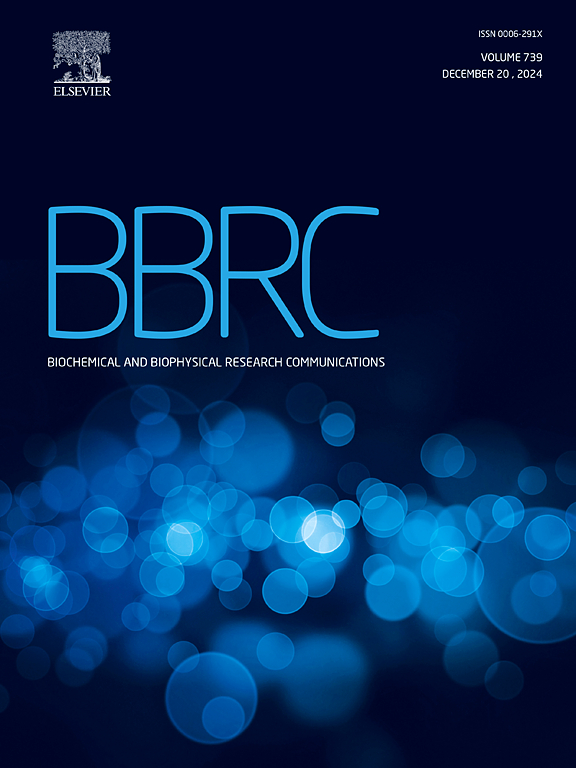Curcumol promotes immune cell invasion and inhibits angiogenesis in colon cancer by decreasing IGF2BP3 expression
IF 2.5
3区 生物学
Q3 BIOCHEMISTRY & MOLECULAR BIOLOGY
Biochemical and biophysical research communications
Pub Date : 2025-01-27
DOI:10.1016/j.bbrc.2025.151394
引用次数: 0
Abstract
The study investigates the potential mechanisms by which curcumol exerts colon anti-cancer effects through angiogenesis and immune infiltration. Using The Cancer Genome Atlas (TCGA) database, we found abnormal levels of IGF2BP3 in both paraneoplastic and colon cancer tissues. Firstly, in vivo experiments were conducted to detect the colon anti-cancer and pro-apoptotic effects of curcumol. Immunofluorescence and immunoblotting experiments elucidated that curcumol regulates immune infiltration and angiogenesis in colon cancer through IGF2BP3, and the interaction between curcumol and IGF2BP3 was predicted. Additionally, IGF2BP3 overexpression (IGF2BP3-OE) was further used to verify the colon anti-cancer mechanism of curcumol. The results of the experiment revealed that IGF2BP3 expression is upregulated in colon cancer tissues and correlates with poor patient survival. Our study demonstrated that curcumol significantly inhibits colon cancer tumor growth by promoting apoptosis and inhibiting proliferation through the induction of apoptosis-related proteins Bax and Cleaved-Caspase 3, and the depletion of Bcl-2. Curcumol also downregulated IGF2BP3, promoting the infiltration of immune-activated helper T cells (CD4+ T), cytotoxic T cells (CD8+ T), and natural killer (NK) cells in tumor tissues, while reducing the number of immune-suppressing regulatory T cells (Treg) and inhibiting the angiogenesis-related protein CD31. Molecular docking experiments identified IGF2BP3 as a direct target of curcumol. When IGF2BP3 was overexpressed, the inhibitory effect of curcumol on angiogenesis in colon cancer tissues was reversed. In summary, curcumol promotes immune cell infiltration in tumor tissues by downregulating IGF2BP3, thereby inhibiting the proliferation and angiogenesis of colon cancer cells.

求助全文
约1分钟内获得全文
求助全文
来源期刊
CiteScore
6.10
自引率
0.00%
发文量
1400
审稿时长
14 days
期刊介绍:
Biochemical and Biophysical Research Communications is the premier international journal devoted to the very rapid dissemination of timely and significant experimental results in diverse fields of biological research. The development of the "Breakthroughs and Views" section brings the minireview format to the journal, and issues often contain collections of special interest manuscripts. BBRC is published weekly (52 issues/year).Research Areas now include: Biochemistry; biophysics; cell biology; developmental biology; immunology
; molecular biology; neurobiology; plant biology and proteomics
文献相关原料
公司名称
产品信息
索莱宝
VEGFA ELISA kit

 求助内容:
求助内容: 应助结果提醒方式:
应助结果提醒方式:


